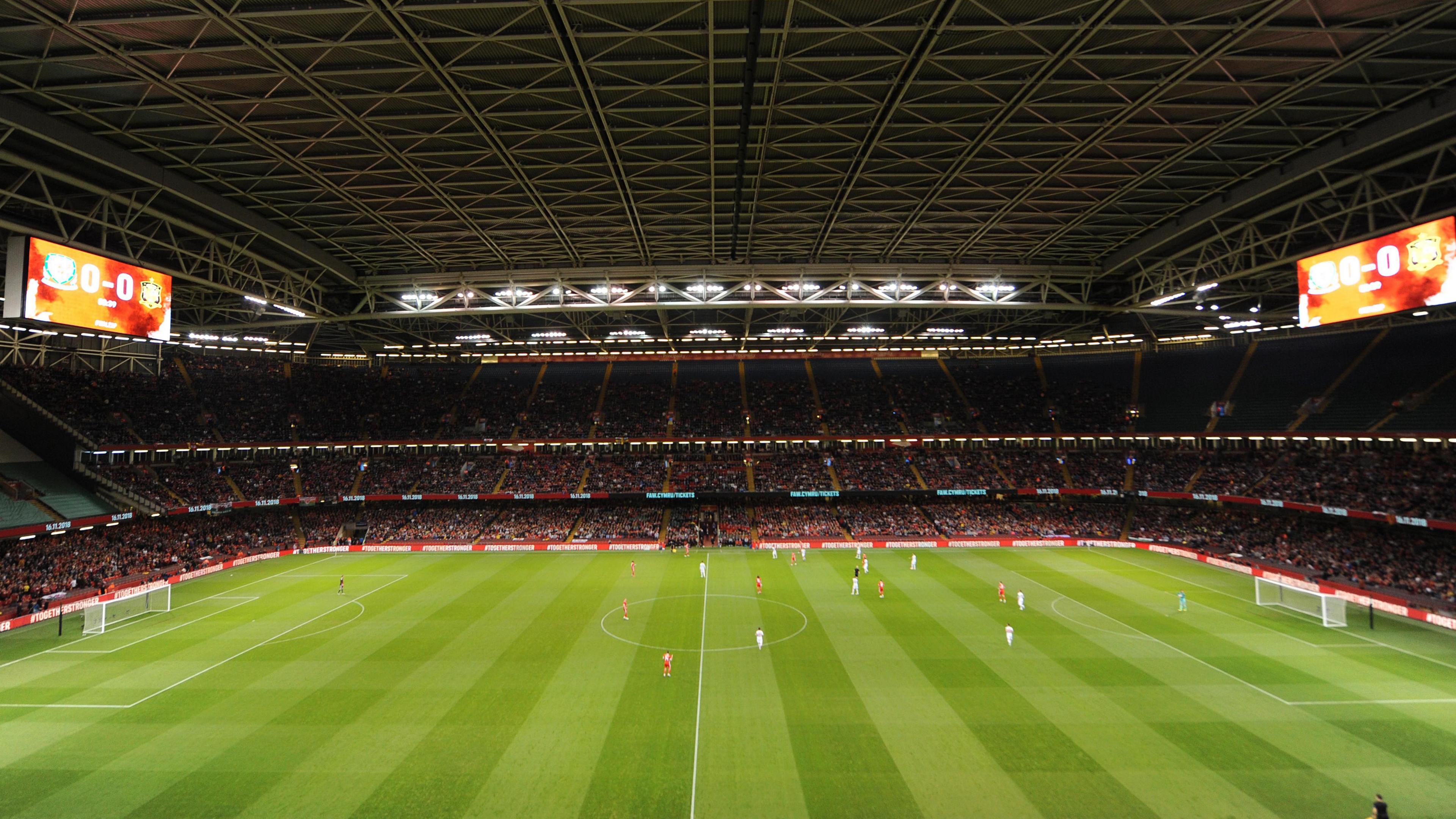Wales is preparing to return to Principality Stadium for Euro 2028. FAW is also considering moving the grassroots game to the summer. Focus on high performance and grassroots investment. Football’s growing popularity challenges rugby union as the nation’s leading sport.
The Wales national football team is set to make a highly anticipated return to Cardiff's iconic Principality Stadium as part of their preparations for Euro 2028. This move, confirmed by Football Association of Wales (FAW) chief executive Noel Mooney, signals a strategic effort to acclimate the team to the stadium environment ahead of the prestigious tournament.
Wales is co-hosting Euro 2028 alongside England, the Republic of Ireland, and Scotland. The Principality Stadium, boasting a 74,500-capacity, is slated to host six matches, with strong indications that it could be the venue for the opening fixture. A guaranteed spot awaits Wales at the stadium should they successfully navigate the qualifying rounds. The national team's infrequent appearances at the stadium, with only one match played there in the past 14 years, underscores the significance of this return.
"I think we will have to look at it. To do well at Euro 2028 we need to be used to that environment again, having not played there in a long time," Mooney stated, emphasizing the importance of home advantage. While Cardiff City Stadium remains their primary home venue, the upcoming matches at Principality Stadium are viewed as crucial preparation for the challenges of 2028.
In addition to the focus on Principality Stadium, Mooney highlighted plans for more regular fixtures in Wrexham. The Stok Cae Ras, currently undergoing redevelopment led by Hollywood owners Ryan Reynolds and Rob McElhenney, is set to become a key venue for Welsh football. The new Kop Stand, designed to meet UEFA standards, will increase the stadium's capacity to 18,000.
The Stok Cae Ras, recognized as the world's oldest international ground still in use, is also under consideration as one of two venues for a potential UK bid to host the Women's 2035 World Cup. Further enhancing Wales's football infrastructure, the FAW is in discussions to bid for the 2029 Women's Champions League final to be held at Principality Stadium.
These developments coincide with a comprehensive update on the state of football in Wales, preceding the launch of a new 10-year strategy next year. A recent study suggests football has solidified its position as the nation's leading sport, surpassing rugby union in interest and participation. The research, conducted by Nielsen as part of a UEFA development program, indicates a surge in football's popularity among children and record-high interest in the men's and women's national teams.
Mooney addressed the debate over whether football could claim the title of Wales's national sport. "Let others decide if football is Wales' national sport," he stated, while affirming the sport's exponential growth. "The game is growing exponentially; we're ahead of targets on participation numbers, and we are going in the right direction."
Looking ahead, the FAW's strategy will prioritize sustained investment across all levels of the game, with a focus on both high-performance and grassroots development. Reforms to governance and structure will underpin this approach, with plans to enhance facilities, provide new funding for the domestic game, and inject much-needed investment into the men's Cymru Premier and women's Adran Premier.
To support these ambitious plans, the FAW aims to boost revenues through stronger partnerships, new sponsorship deals leveraging international success, and strategic utilization of the association's cash reserves. Mooney emphasized the importance of proactive planning for Euro 2028, recognizing the high likelihood of Wales's participation.
"We don't budget to qualify for tournaments, but we have Euro 2028 coming here, and we know that we are highly likely to play in it with the qualifying set-up, so it would be foolish not to plan on that basis," Mooney explained.
The FAW is also considering a significant shift in the grassroots game, potentially moving it to the summer months following consultations with member clubs. Concerns about increasingly poor winter weather and frequent cancellations at junior and local levels have prompted this review, with a recommendation expected before Christmas.
"We have zero prejudice and will be led by the clubs as to what is best for the game," Mooney assured, highlighting the FAW's commitment to responsive decision-making.
